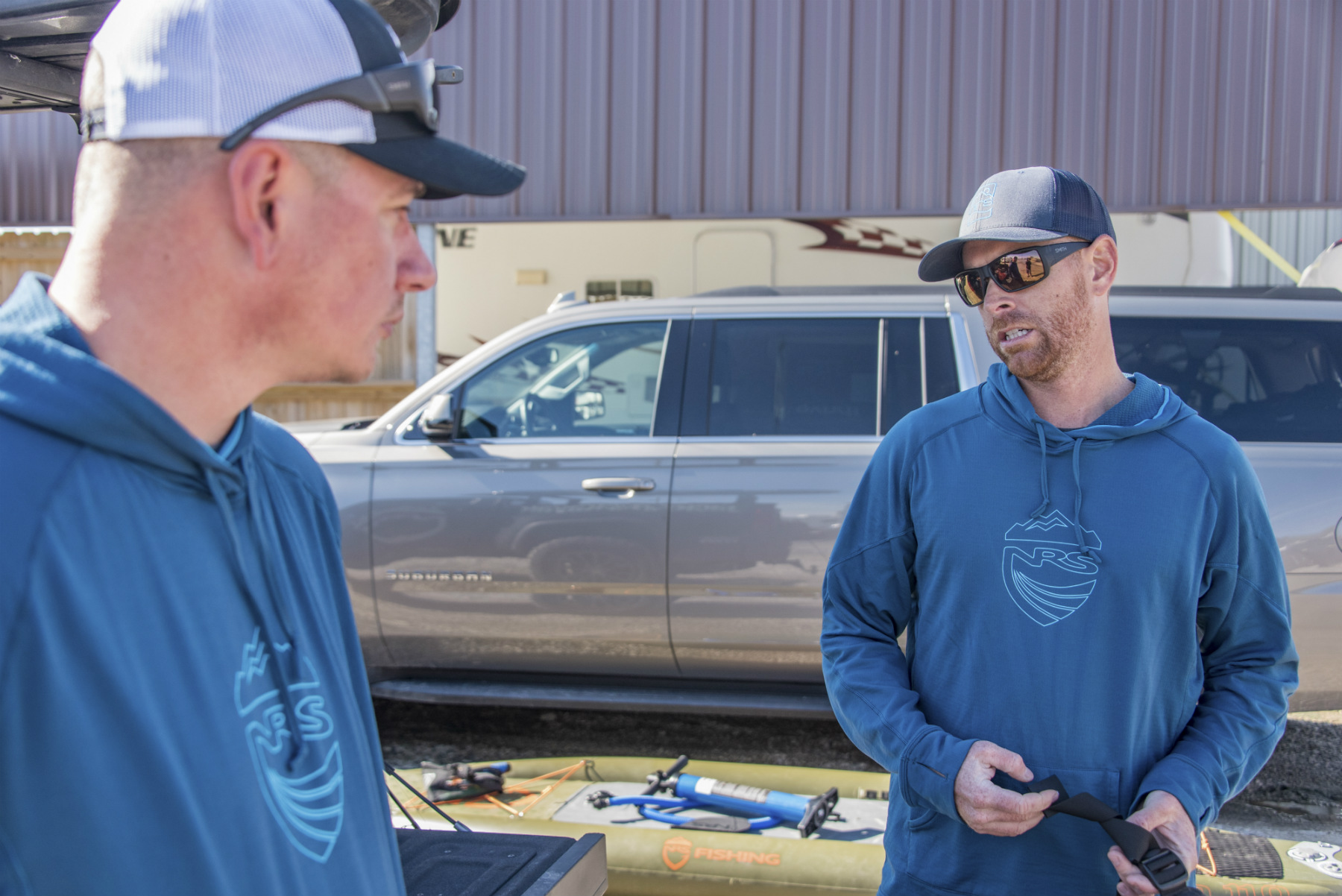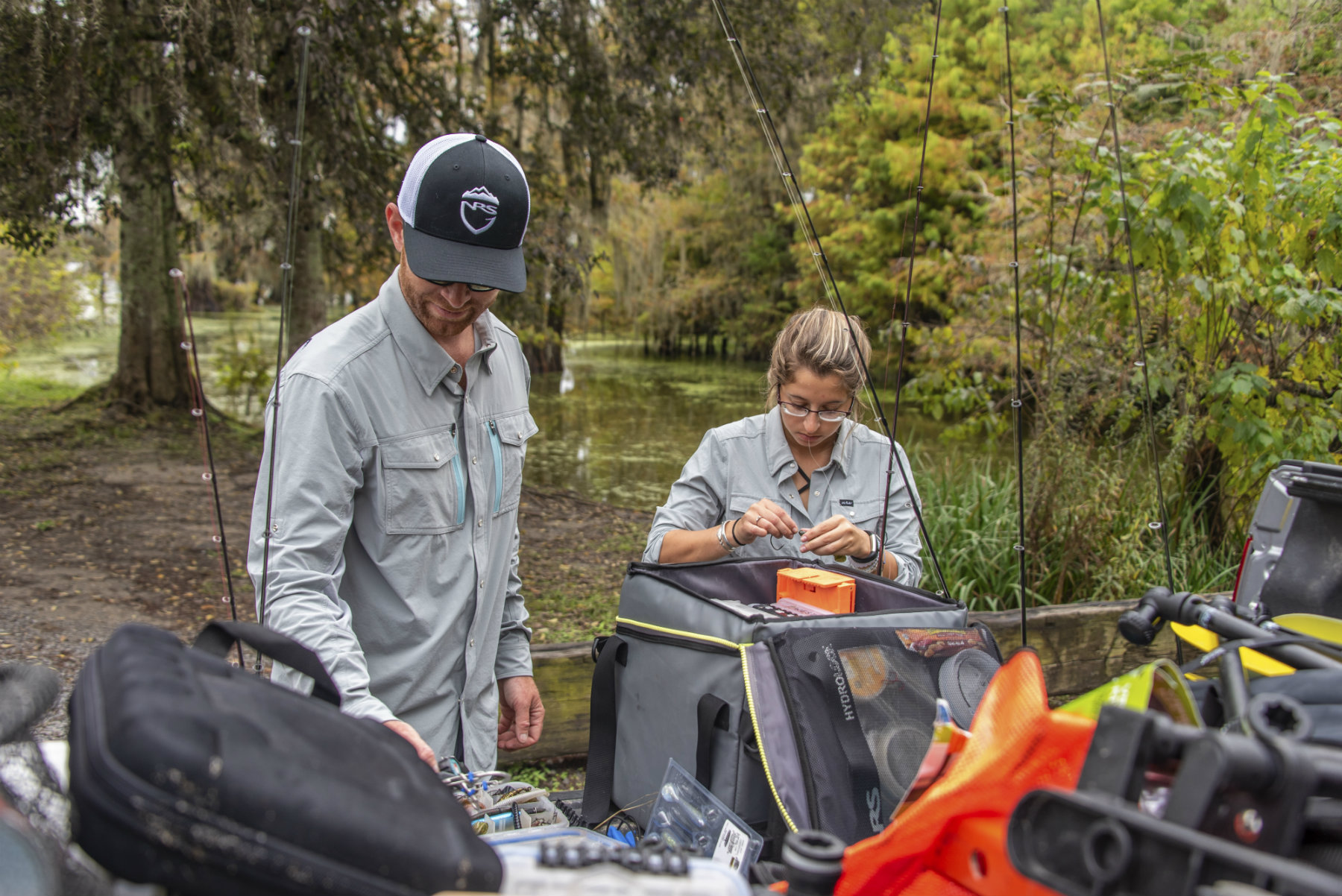Like most sports, the fishing community can be a very clique-ish group broken up into all sorts of different categories. The broad paintbrush of being an angler only works for those that don’t fish. In new encounters between anglers, once it’s stated that you are a fisherman, a clearer definition is expected/required before the conversation can continue in earnest.

There’s a proper ritual and vernacular involved here. The goal is to determine if this new contact is a possible future fishing partner. It’s all very similar to birds of paradise courtships to see if the prospective match will be effective for both. I call this the leveling effect.
The leveling effect basically means seeking fellow anglers with the same skill set that you possess. As anglers we all do this, most of the time subconsciously. As you get more experienced and older you do it more deliberately because you know the type of anglers you will enjoy fishing with. With veteran anglers, this is expected and understood without saying it. A new conversation between seasoned anglers will generally go something like this.

Q: Do you fish?
A: Yes, I do, most of the time I am fishing in saltwater and will dabble in fresh.
This answer identifies your preferred waters and order of preference helping to steer the conversation. If the response to your answer is that they love the same type of water, then the expansion of details will follow. Should the response indicate that they’re at opposite ends of the spectrum then the conversation turns to polite swapping of fish stories. With a positive reply then location plays out next.
Q: Ahh, excellent. Offshore or inshore?
This is the narrowing of the field of play. Do take note that there was no mention or asking for a specific location. Such a direct question will immediately shut down the courtship ritual with a polite deflection or not so polite answer. This is a major rookie mistake.

A: Both, but I prefer inshore.
Now, this response allows some wiggle room for both parties. It lets the prospect know you’re open to other areas of fishing. Most saltwater anglers have their favorites but will fish both areas. With freshwater, choices are usually species-specific. This also establishes that you have a greater skill set to bring to the table. Skillset is the one overriding factor to the rest of the courtship once a basic compatibility is present.
At this point, the conversation will branch off into one of several directions. Species fished for, general location or previous areas fished, or what do you fish out of. Of the three if things are going well, then figuring out if you are close enough to fish together comes next.

Q: Where do you fish out of then?
Again, note the lack of asking for a specific fishing spot. You are in fish-speak asking where they spend most of their time fishing. If they want to continue the dance, then they will share a boat launch or city location.
A: Mostly out of the Crystal River area?
This says we are still dancing without giving anything away and the word “area” means the location is flexible/open to ideas. With some anglers, the type of fish they fish for is very specific and non-negotiable which you will see most often with bass fisherman. This is especially true with tournament anglers. That’s not a bad thing just the nature of the beast.

Q: Hey so do I, what kind of rig do you fish out of?
No matter the answer to this question it is a key turning point in the fisherman’s customary posturing. It means you have reached the place where you can get down to the nuts and bolts of making a fishing buddy. If the answer is anything other than a kayak, then you are negotiating to either swap rides or buy gas. But before that, the skill set is the final hurdle.
This is where the peacock shows its full plumage to seal the deal. The exchange of tactics, tackle used, and techniques involved for specific quarries is how we determine this. In a boat, this is very critical because you need to be on the same page while working from the same platform.

Now when the answer is “I fish from a kayak,” then the final discussion of tackle and technique is unnecessary. Fishing is a very singular activity that can be done completely alone or shared with a group. A kayak provides that exact experience all the time and why I believe the camaraderie is like no other in the world of fishing.
You will still have the leveling effect between fisherman, but it is far less pronounced in kayak fishing. In a boat, this factor plays a heavy role in how and where you fish. In a kayak, it has very little impact on your fishing as you are in your own boat all the time. You can fish completely different styles and still fish together.

And together does not necessarily mean you’re fishing side by side. In most cases, kayak anglers fishing together tend to spread out chasing their own piece of water and action. Proper etiquette dictates that should you want to get out of sight of each other than announce to your partner where you plan to go. This will allow them to catch up or let you know what they intend to do or if they are comfortable with those conditions. It equates to the same purposes of having a dive partner, you don’t split up without a clear understanding of what’s going on and why in case something goes wrong.
The only real limiting point between kayakers is paddling ability or in some cases, this may be determined by the type of kayak you own. As in my case, I cover a lot of water, averaging six-eight miles per trip. I’ve also had trips that went 10-12 miles. Most of those are in very shallow water. If you were in a pedal drive or a very short kayak you would struggle at best to keep up under these conditions. You should always be upfront about any limitations in skill or physical abilities you may have with whom you’re planning a trip. If your partner knows your weaknesses ahead of time, you two can arrange a different type of trip.

After 15 years in the sport I still can’t put an exact reason on what makes the kayak fishing community such an open and inviting group. I believe it is a multifaceted series of life experiences that bring you to kayak fishing. Because kayak fishing really embodies the true essence of fishing at its base level. The traits of every kayak angler I know are almost exactly the same:
Loves the outdoors with a deep appreciation for all of nature;
Relishes the simplicity of the process; Enjoys the physical aspect of self-propulsion;
Is a die-hard angler first;
Appreciates the sense of self-accomplishment that comes from being challenged by Mother Nature and winning that challenge;
Has pride in our sport;
And a willingness to help a fellow kayak angler who is a complete stranger

To the last point, I will give you an outstanding example that I experienced during pre-fishing at the 2018 Extreme Inshore Challenge. At the butt-crack of dawn, I was searching for a launch spot to get to my chosen area just south of St. Augustine, Florida. I had managed to bury my truck to the frame about an hour before sunrise. I spent the next hour digging and placing in materials to assist in getting myself out. None of it was working.
Being so far from home meant the day was looking like a wash and about to get expensive with the possibility of calling a tow truck. But as soon as the sun was up, and my condition came to light to other drivers my luck changed.
In a matter of minutes, three different people stopped to assist me. In all three cases, they were fellow kayak anglers who wanted to lend a helping hand. The first two tried to pull me out separately but I was so buried they didn’t have the traction needed. The third was on his way to work a short distance down the road at a construction site. He went to work and brought back a huge front-end loader which pulled me out in seconds.

I offered to buy breakfast for everyone and they all politely refused having to carry on with their days. They were just happy with the thanks and glad to help. This incident made me so proud of our sport and how we naturally interact with each other even though we can be complete strangers.
It is this unspoken but naturally occurring common bound that makes our sport such a great place to meet new people that can turn into tremendous relationships. Some of my best friends have come from contacts made through our desire to paddle and fish together.